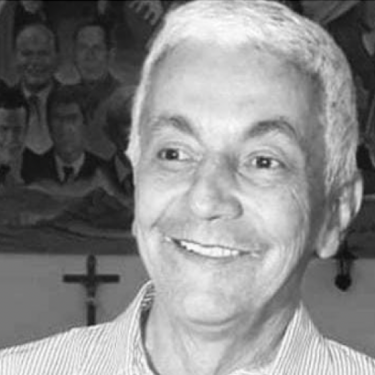RSF calls for thorough investigation into journalist’s murder in western Colombia

Reporters Without Borders (RSF) condemns the murder of a veteran journalist, Marcos Efraín Montalvo Escobar, in western Colombia’s Valle del Cauca department, an extremely dangerous region for the media, and calls on the Colombian authorities to conduct an exhaustive investigation to identify those behind this apparent contract killing.
Marcos Efraín Montalvo Escobar, 68, was gunned down on the evening of 19 September while shopping in the Esperanza district of the city of Tuluá. Security camera footage shows a man in a motorcycle helmet walk into a store, fire several shots, and then make his getaway on the back of a motorcycle driven by an accomplice. Montalvo died within minutes from the gunshot injuries he sustained in the attack.
The Diario Occidente newspaper said Montalvo had recently received threats in connection with his reporting. Several sources told RSF that he was an expert on local politics and was often very outspoken in his criticism of local political corruption and violence. The local authorities said an investigation was under way but did not say if they thought the murder motive was linked to his journalism.
“We urge the local authorities to conduct an exhaustive investigation into journalist Marcos Efraín Montalvo Escobar’s murder and to not use any pretext for neglecting the possibility that he was killed in connection with his journalism,” said Emmanuel Colombié, the head of RSF’s Latin America bureau.
“At the same time, the vulnerability of journalists working in the Valle del Cauca department is extremely worrying. Both the local and national authorities must guarantee the safety of reporters in this region, because their work is vital for the population.”
Montalvo was an experienced journalist who was both well known and respected for his professionalism. In the course of a career that began more than 40 years ago, he had worked for many local and national media outlets, especially newspapers such as El Calenõ, Dario Occidente, El País de Cali and a local weekly, El Tabloide de Tuluá.
He has also founded the newspapers El Reportero, La Variante, El Otro and El Picacho, and had worked for RCN radio and for the programme Alerta Valle del Cauca on Radio Reloj de Caracol. After going freelance, he had been commenting on local (Tuluá) and regional news on his Facebook page for the past few years.
Valle del Cauca department has seen many land conflicts and violent clashes between armed groups (ex-FARC, ELN and Clan del Golfo), drug traffickers and the military in recent years. According to the Colombian NGO Indepaz, 12 civil society leaders have been murdered and four massacres have taken place so far this year in Valle del Cauca, which is one of Colombia’s most violent departments (along with Chocó, Cauca and Nariño).
The media have often been among the targets of this violence in the past two years. Freelance journalist Luis Carlos Ayala survived a murder attempt in Cali, the departmental capital, in April 2021, while Felipe Guevara, a journalist with the daily newspaper Q'hubo, was murdered in Cali on 21 December 2020.
Valle del Cauca, in particular Cali, was one of the epicentres of protests during the recent national strike, during which Colombia’s Press Freedom Foundation (FLIP) and RSF tallied some 68 attacks against the media. Threats forced five journalists to flee the region in 2019 and 2020, and at least 77 attacks against journalists have been registered since the start of 2021, according to the FLIP.
Colombia is ranked 134th out of 180 countries in RSF's 2021 World Press Freedom Index.



